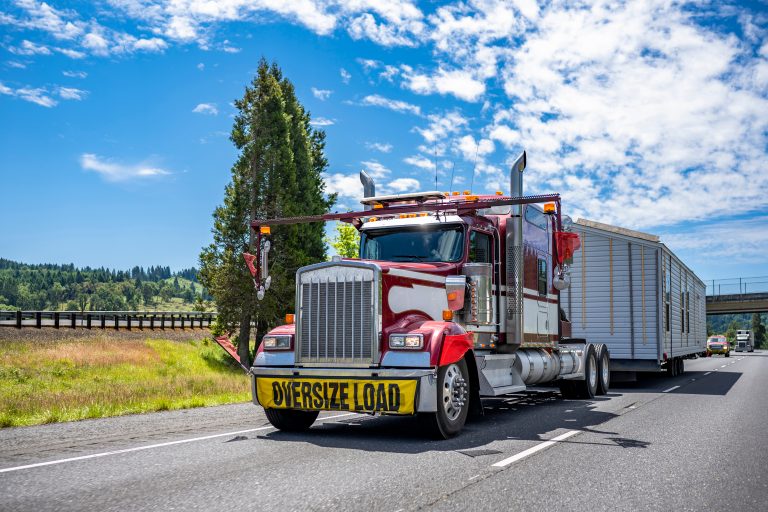In the world of transportation, meeting legal requirements is crucial. Finding a trustworthy digital logbook for truckers has become essential since the electronic logbook mandatory date. A good electronic logbook should simplify operations. Whether you’re a driver using electronic logs or a fleet manager looking for easy logbook compliance, this article will introduce a dependable option that fits legal needs and boosts productivity.
From Paper to Digital Logbooks
The shift from paper to digital logbooks changed how truckers work. Paper logs were the law before the federal law on electronic logbooks, but dealing with complex rules was tough, risking errors. Moving to electronic logging devices had a learning curve, but it automated tasks, reduced mistakes, and improved compliance.
Do you have any questions? Talk to ELD Advisor: 650-405-3372 or Request Callback
Today, most US drivers have to use ELDs to track work hours due to the electronic logbook requirement. This applies to carriers crossing state borders, including drivers from Mexico or Canada. However, some drivers can still use paper logs, like those:
- Keeping records for up to eight days in a 30-day cycle.
- In drive-away-tow-away situations.
- Driving vehicles made before 2000.

What Digital Logbook Solutions Offer
Electronic logs have become a standard part of modern trucking. Let’s look at what makes electronic logbooks helpful:
- Compliance. Rules for work hours are vital. Digital logbook solutions automatically track driving hours and rest times, helping avoid fines and penalties.
- Automatic data capture. Digital logbooks capture and calculate info automatically, saving time and reducing errors.
- Real-time tracking and reporting. Electronic logbook solutions show managers real time information on trucks’ location are driver’s activities and hours of service, helping managers better coordinate dispatch.
- Integration with fleet management systems. ELDs can connect to GPS trackers, fuel trackers, and dispatch systems, helping improve productivity.
- Data security. Trusted digital logbook solutions protect drivers’ info and follow strict privacy rules.
While compliance is important, an ELD that’s easy to use is just as vital, especially when the trucking industry is struggling with high driver turnover rates. At HOS247, we know choosing an ELD can be challenging. Our highly-rated digital logbook for truckers is made to follow the rules while also being easy to use. With high-quality hardware and responsive customer support, we’re a reliable partner in trucking.
HOS247 Is a Top-Rated ELD Provider
When it comes to managing a trucking business, having the right tools can make all the difference. That’s where HOS247 ELDs come in, offering a range of practical benefits that can help you improve operations. Let’s take a closer look at what makes HOS247 ELDs stand out:
- Easy to use. Complex systems don’t need to be confusing. HOS247 ELDs have an interface that’s intuitive, making RODS easy to keep.
- Efficient customer support. When you have issues, you need help that’s fast and effective. HOS247 has excellent support in many languages (including Polish), making sure you get the right answers.
- Durable hardware. Hardware problems can be frustrating. HOS247 has strong hardware and offers a one-year free replacement warranty, giving you peace of mind.
- Flexible plans. Every business is different, and HOS247 knows that. We offer plans with monthly or yearly subscription options, so you can choose what works best for you.
- No contracts. At HOS247 we want our customers to stay because of the quality of our solution, which is why we have a no-contract policy. Our focus is on giving you quality services and value, with no extra commitments.
- 14-day trial. Want to see what HOS247 ELDs can do? You can try them for two weeks without any risk. See the benefits for yourself and, if you are not satisfied, we will refund your money, no questions asked.
HOS247 ELDs are more than just tools – they’re here to help you manage your business better, with reliable operations, easy features, and effective technical support. With HOS247, you’re getting a partner that wants to make managing your fleet easier and better. See what our customers say about HOS247 ELDs here.

Logbook Compliance During ELD Malfunctions
When an ELD has a problem, it’s important to follow certain steps to stay compliant. The Federal Motor Carrier Safety Administration (FMCSA) has rules for both drivers and carriers.
For Drivers:
- Immediate reporting. If your ELD has a problem, inform the carrier in writing within a day.
- RODS reconstruction. Make sure you have records of work and rest times for the last seven days, either retrieved from the ELD or reconstructed on paper.
- Temporary manual recording. If the ELD has a problem, use paper logs until it’s repaired or replaced.
For Carriers:
- Timely solution. If the ELD has a problem, fix it in eight days or less.
- Paper RODS. Until the ELD is fixed, carriers should require drivers to use paper logs.
ELD malfunctions can include power data diagnostic events and compliance issues related to power, engine synchronization, timing, position, and data recording. Also, challenges may arise involving missing data elements, data transfer hiccups, and unidentified driving records. Understanding the procedures and responsibilities during ELD malfunctions is crucial to maintaining uninterrupted compliance. By following these protocols, both carriers and drivers make sure their operations are not affected.
How Do You Fill Out A Logbook on Paper?

Getting the hang of completing a truck driver’s logbook manually might appear overwhelming for new drivers, but with a solid understanding of the basics, truckers can navigate this task with ease. The logbook’s essentials encompass:
- Date
- Carrier name
- Truck number
- Total miles covered within 24 hours If multiple vehicles were utilized, each one must be documented.
The logbook is a comprehensive account of a driver’s journey. Begin by noting:
- Cycle’s starting time
- Names of co-drivers, if applicable
- Detailed information on shipping documents, carrier, and cargo
- “From” and “to” lines denoting origin and destination
The heart of the logbook lies within the graph grid—a visual representation of the driver’s activities. Through an hour-by-hour breakdown, drivers allocate time to different tasks. Whether off-duty, sleeping, driving, or on-duty but not driving, each segment must be carefully marked. Navigating the graph grid involves drawing vertical lines to define shifts in duties. Alongside each entry, annotations can be made. A detailed account of time, date, location, and even nearby mileposts and highways is necessary for accuracy.
The final step is verifying that the total hours sum up to 24, rectifying any errors, and maintaining legibility. By sticking to these practices, truckers can successfully complete their manual logbooks and stay compliant with federal laws, even during ELD malfunctions.

As an expert in B2B and B2C sales, I’ve dedicated myself to perfecting sales processes and client retention strategies in the logistics and trucking industry. I have significantly contributed to the expansion of the ELD service, catering to retail and wholesale clients in need of HOS247 ELD solutions. My unwavering commitment to implementing state-of-the-art sales techniques and technologies ensures the continuous growth and success of businesses I work with.












There’s an old saying that goes “trucking ain’t easy”. However, with CDL electronic logs, logistics operations in the trucking industry can drastically improve for commercial drivers, fleet managers, and owner-operators. Switching to the right electronic logging device can help them

GPS asset tracking revolves around the use of the Global Positioning System (GPS) to monitor and manage the location and movements of physical assets, such as vehicles, equipment, or cargo, from a distance. This means whether your fleet is moving

The Department of Transportation is responsible for federal transportation policy, which the FMCSA enforces. The ELD federal mandate is especially important, since it has made a big difference in the way authorities monitor hours of service compliance. The purpose of